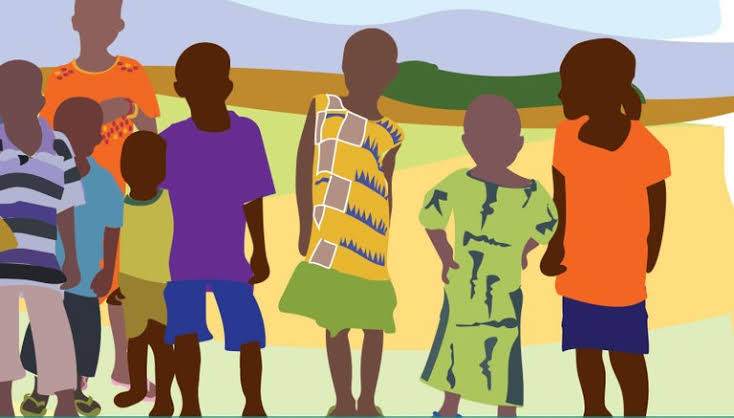[ad_1]
Today, Tuesday, May 27, 2025 is Children’s Day in Nigeria. The day, which is observed by other countries on other days, is to raise awareness about the rights and plight of children. The day seeks to protect children from vulnerable conditions as well as guarantee them access to education and other basic needs of life. Although it isn’t a public holiday in Nigeria, school children celebrate the day with events that usually include quiz competitions, radio and television programmes, march-past, and children’s parties. The theme for the 2025 Children’s Day in Nigeria is ‘Tapping the Untapped Natural Treasure’.
In the 1960s, through the 1980s, most school children looked up to children’s day because of the fun, excitement and fanfare that greeted the occasion. Then was the period when school children had all they required to learn effectively. Their teachers’ welfare, too, were reasonably catered for by government.
Therefore, school children of those glorious old days were justified in their celebration of the day. Why wouldn’t they celebrate when in the case of the North, for instance, the northern regional government provided them with all learning materials for free including textbooks, notebooks, drawing papers, coloured pen and pencils? Besides, their teachers had no reason to go on strike. During this same decent period of the country’s commitment to the cause of the Nigerian child, phrases like child labour, child trafficking, and out-of-school children were never heard.
SPONSOR AD
Today, children in many public schools in parts of the country would count themselves lucky if they have a desk to write on, most likely in a classroom that has a partially blown-off roof or none at all. Access to qualitative education is still a dream for many children in Nigeria. For many years, over 10 million school-age children have continued to remain out of formal school system; swelling the population of illiterates in a country that should have, given its resources, wiped out illiteracy before the close of the twentieth century.
While some school children would today manage to be part of the ‘ritual’ of the march past to mark the day, millions of children in Nigeria may not even be aware of it because too many of them are victims of deprivations including insecurity, poverty, hunger, disease and squalor. The United Nations Children’s Fund (UNICEF) in a recent forecast revealed that 33 million people in Nigeria, including over 16 million children, will not know where their next meal will come from in 2025.
In the same report, UNICEF Nigeria Representative, Cristian Munduate, further said nearly 5.4 million under-five children in the North West and North East Nigeria are currently suffering from acute malnutrition. Education and health remain two most critical areas in which Nigerian children have inexcusable predicaments to endure.
In many states, school buildings are dilapidated, workshop equipment are either obsolete or non-existent. Where parents cannot provide classroom furniture, children sit on bare floors or share desks; sometimes under a tree. Teachers spend most part of the academic year organising strikes rather than imparting knowledge; an action they often blame on poor remuneration or unpaid salaries. These challenges plausibly explain why children, unlike in the past, scarcely look up to the occasion of children’s day nowadays.
Thus, it is apt to ask what Nigerian children are celebrating today as they converge at various sporting arenas and stadia across the country to mark the Children’s Day. Are they out on the fields to celebrate schools without qualified teachers, classrooms without chalkboards, or football pitches without a ball? Children experiencing these deficits can only celebrate failure, neglect or abuse; not happiness or success. Yet, Nigerian leaders call children left to endure this huge set of challenges ‘leaders of tomorrow.’
The country’s leaders must stop paying lip service to the needs of the Nigerian children by sparing a thought for them and their basic needs.
Parents, too, share some blame for the plight of Nigerian children. Many have put their businesses and other interests above the education, care and love due to their children; thus, exposing them to all forms of social abuse. The high prevalence of broken homes and the menace of drug and substance abuse have, separately, had negative consequences on the moral upbringing of Nigerian children and youths.
To enable us to tap into the abilities and talents of Nigerian children as the nation’s natural treasure, we must first jealously guard, protect and preserve their basic rights against all forms of abuse, neglect or vulnerability that seek to hamper the country’s desire to explore and develop their potential. The federal government should issue an executive order to compel every state that has not domesticated the Child Rights Act passed by the National Assembly since July 2003 to do so immediately. This has been made a simple request considering that the states have the right to domesticate the document in line with their cultural, religious and other sensitivities.
Government, the school and the home, must collectively work out synergies that would aid the building of a culture of security for the Nigerian child. If the future of the country depends largely on what we make out of today’s children, their future must indisputably be guaranteed.
Do you want to share a story with us? Do you want to advertise with us? Do you need publicity for a product, service, or event? Contact us on WhatsApp +2348183319097 Email: platformtimes@gmail.com
We are committed to impactful investigative journalism for human interest and social justice. Your donation will help us tell more stories. Kindly donate any amount HERE




